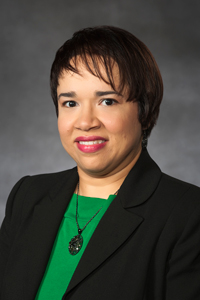With teen depression on the rise, it’s important to know how to spot the symptoms and find teens the help they need.
Spotting the Signs of Clinical depression in Teens
In 2011, a survey of children in grades nine through twelve, conducted by the Virginia Department of Health, reported that 25 percent of students in Virginia said they had experienced periods of depression, and 16.9 percent had seriously considered suicide. These are disconcerting statistics from Margaret Nimmo Crowe, acting executive director of Voices for Virginia’s Children.
But for Paula Martin of Richmond, teen depression is much more than a statistic. Her daughter Reese began to exhibit signs of serious depression in eighth grade. Her physician tried to address this with the anti-depressant Paxil. Shortly after, Reese tried to take her own life. From that day on, Martin’s life and her daughter’s became an unending series of visits to doctors and therapists in an attempt to save Reese’s life. Some drugs helped; others made symptoms worse. Following a more serious suicide attempt, her doctor recommended a residential Setting for Reese, but the cost was $600 a day and insurance would not cover it. Reese needed supervision twenty-four hours a day. Martin asked her employer to allow her to work from home. Constant vigilance was required.
Clinical depression in teens, particularly in girls, is very common and can begin early. If related to adolescence it will generally peak between ages sixteen and twenty-four. Rosa Morales-Theodore, MD, is a psychiatrist with the Virginia Treatment Center for Children at the Children’s Hospital of Richmond at VCU and active with Children’s Mental Health Resource Center, a coalition of organizations and Individuals in Greater Richmond who came together with the goal of making it easier to navigate the complex system of mental health care for children. She says that in her experience, teen depression can be different than the adult variety in that teens often mask their feelings of despair or lack of self-worth with anger, anxiety, acting out, or isolating behavior. The following symptoms are also common: loss of interest in activities; changes in eating and sleeping habits; feelings of worthlessness and guilt; lack of energy; tearfulness or frequent crying; insomnia or wanting to sleep all day; loss of friends; and thoughts of death or suicide.
Types and Causes of Teen Depression
There are different causes and types of depression. Situational is generally caused by a circumstance such as moving, loss of a close relative or friend, or a relationship breakup. This kind of depression is usually temporary and can be resolved if needs are met in new ways. Depression can be genetic in nature, or hormonal and linked to the biological changes experienced by adolescents. Depression can be mild or severe, chronic or cyclical. It can be part of bipolar disorder where periods of high, or manic emotion, contrast with the lows of deep depression. In severe cases, it can be accompanied by psychosis.
In Reese’s case, in addition to the sadness of depression, there was the phenomenon of self-abuse with episodes of cutting, characterized by small slashes with a knife or other sharp object to cause self-injury, usually not intended as suicide. As her condition deteriorated, Reese reported hearing voices telling her to hurt or kill herself.

Getting Help for Depression
For her daughter, Paula sought help at her local community services board (CSB.) Each county has a CSB created specifically to assist individuals with mental health issues. According to Paula, “Each CSB is very different as they are locally run and services vary widely.” While the CSB could not meet her needs, Reese had also been diagnosed with attention deficit hyperactive disorder (ADHD) and fell under the auspices of special education. Utilizing the federally mandated Comprehensive Services Act (CCSA), a family assistance planning team (FAPT) for Reese was created and a case manager was appointed. FAPT teams offer support to kids in special education, foster care, or the justice system. Through the CCSA, funds were appropriated for Reese to have a limited stay at a residential treatment facility at Poplar Springs Hospital in Petersburg.
Back at home, Reese started new meds and was able, with a lot of cooperation from the school, to return to classes and graduate. About the horrific experience and her daughter’s efforts to be mentally well, Paula says, “There is no book for this. We struggled to get help and the system is very frustrating and confusing. I think many parents just give up.” Reese also benefi tted from in-home counseling. Today, her mother is concerned about what will happen when she is no longer receiving school services. She intends to attend John Tyler Community College in the fall if all goes as planned.
Paula says her daughter’s experience has taught her the importance of engaging others for help and feedback. “Talk to other parents to get to know the system. Don’t get overwhelmed and don’t give up. Ask a friend who knows a friend… everyone knows someone who has these problems,” says Paula, adding that it’s important to tell yourself that depression is a disease and advising families not to get caught up in the stigma that comes with mental health disorders.
Reese had her own advice for teens experiencing depression. “There is hope. You can’t quit; don’t go into isolation. There is so much beauty in the world, including YOU. That is why there are people fighting for you. It’s not the end,” said Reese. “Keep looking for the good things and keep hope alive.”
Dr. Morales-Theodore said the course of treatment to combat depression in teens starts with counseling. “Try therapy fi rst,” she says. “If your child does go on medications, monitor closely for increased thoughts of suicide.” Note what’s called the black box warning from the FDA which states that antidepressants of all kinds may increase the risk of suicidal thinking and behavior in some children and adolescents with depression.
According to Dr. Morales-Theodore, if the cause of the depression is biological or genetic, medications may be helpful. Many anti-depressant medications are in a class called selective serotonin re-uptake inhibitors (SSRIs). These drugs are a class of compounds used as antidepressants in the treatment of depression, anxiety disorders, and some personality disorders. SSRIs are believed to increase the activity of the neurotransmitter serotonin. FDA studies of clinical trials, published in 2007 showed that 4 percent of those taking SSRI medications experienced suicidal thinking or behavior, including actual suicide attempts – twice the rate of those taking placebo, or sugar pills.
Dr. Morales-Theodore says children and adolescents taking SSRI medications should be closely monitored for any worsening in depression, emergence of suicidal thinking or behavior, or unusual changes in behavior, such as sleeplessness, agitation, or withdrawal from normal social situations. Close monitoring is especially important during the fi rst four weeks of treatment.
How can a parent tell if teen depression is severe? Dr. Theodore says parents and caregivers need to ask: How is that child functioning–the same as before or not? Are his or her grades falling? Has their social life dropped? Is there a loss of interest in activities? But, she cautions, “Be careful with intelligent kids who may be good at hiding depression. Trust your gut as a parent.” She adds that one problem with the mental health system is a lack of physicians dedicated to treating children and adolescents. Dr. Morales-Theodore suggests starting with your pediatrician first and asking for a referral to a mental health professional.
When I asked Reese what helped her most, she said, “My support system of family and friends. I know people were there for me. Parents, don’t let your child slip away. Stay close, stay in touch with what is going on with them, even if they don’t like it or reject you. And, if you are a teen and have a friend or know someone who is depressed, don’t abandon them,” says Reese. “I had friends who dropped me and others who stuck by me through this whole ordeal. They mean the world to me.”
Expansion of Care in Richmond
The Virginia Treatment Center for Children (VTCC) is part of the Children’s Hospital of Richmond at Virginia Commonwealth University and is located on the campus of the VCU Medical School. Since 1962, VTCC has provided acute inpatient care as well as a full range of outpatient mental health services for children and adolescents.
Last year, the Virginia General Assembly voted to authorize funding for the construction of a new facility to house and expand the services of VTCC. The larger structure will have state-of-the-art technology and increased space that will allow families to participate more fully in their child’s treatment. This structure will also provide much needed additional inpatient beds (thirty-two) for children in psychiatric crisis as well as expanded outpatient services. It will also incorporate current mental health research programs presently at VTCC, as well as training for mental health practitioners.
Children ages three to seventeen, throughout the state, are eligible for services. Acute care crisis stabilization and outpatient mental health treatment for a full range of mental health disorders will be treated including: autism, schizophrenia, bi-polar, depression, and anxiety disorders.
The new location will be on the grounds of the Children’s Hospital on Brook Road and if all goes as scheduled, it should take three years to complete.
Margaret Nimmo Crowe is acting executive director of Voices for Virginia’s Children, an organization with a mission to improve the lives of children in Virginia by advancing effective public policies. She says, “We are very excited that VCU has contracted to build a new treatment center for children. VTCC provides excellent mental health services and research which are critically needed.”




